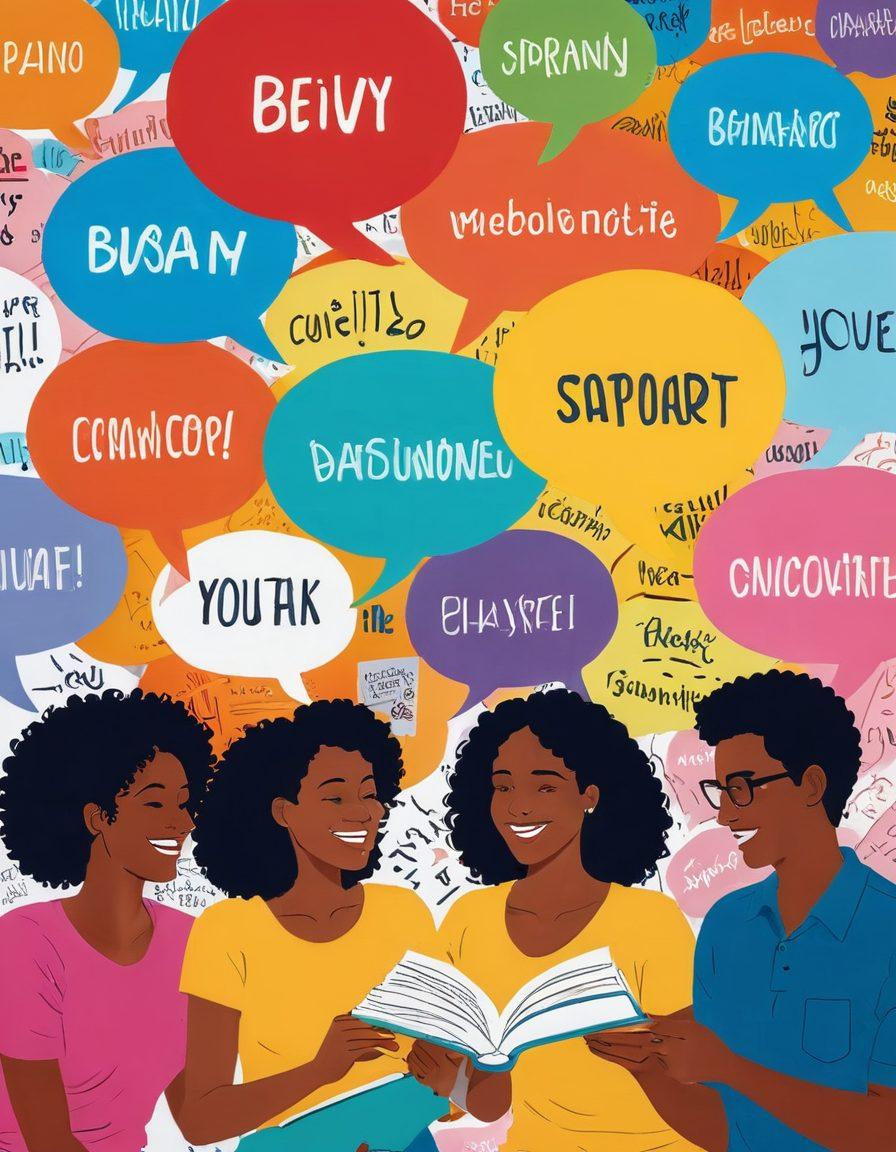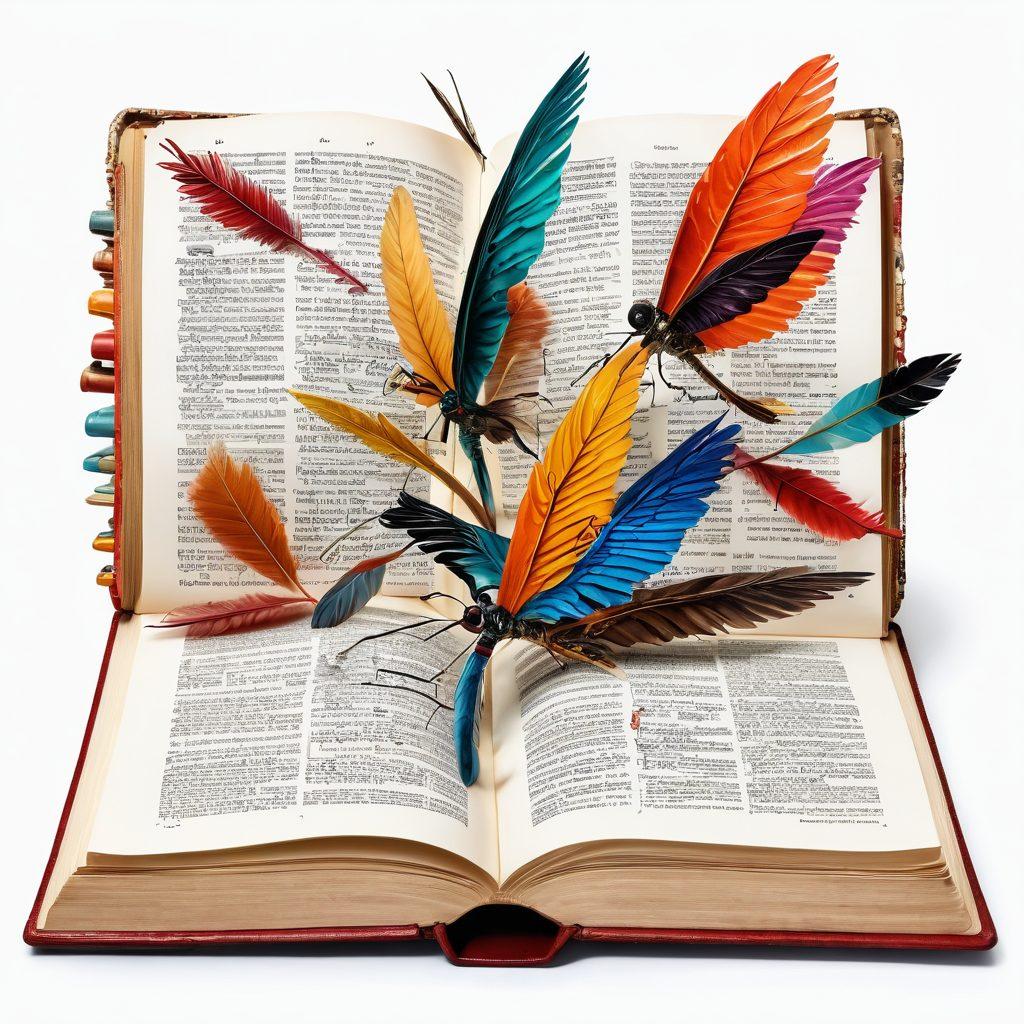Unlocking the Power of Language: A Deep Dive into Happy Vocabulary and Linguistic Enrichment
In a world brimming with chatter, the ability to communicate effectively is the secret sauce to building connections. Communication is more than just exchanging words; it’s about conveying emotions, ideas, and thoughts that resonate with others. Enter the concept of 'happy vocabulary'—a delightful and heartwarming lexicon that fosters positive interactions. Think back to the last time you had a conversation that left you beaming with joy or inspired to take action. What words were used? How did they make you feel? Happy vocabulary is more than just a collection of words; it's a powerful tool that can transform your conversations from mundane exchanges to heartfelt dialogues.
Imagine you have a thesaurus at your fingertips—a treasure trove of synonyms that expand your expressive capabilities. The beauty of language lies in its economy and diversity; a single thought can be articulated in countless ways. A quick glance at your wordbook reveals descriptive adjectives that conjure vivid pictures in the minds of your listeners. The words we choose shape the emotional landscape of our communications. By embracing a rich lexical repertoire, including synonyms and playful idioms, we can enhance our language skills and ensure our messages resonate deeply with those we engage with.
Each language holds an etymology—its history embedded within the words we use. Delving into the origins of terms can often reveal their significance in our lives. For instance, the word 'happiness' originally stems from 'hap,' meaning luck. Imagine infusing this understanding into discussions about positive feelings. By highlighting the provenance of our language, we can cultivate a richer communication experience. By utilizing a glossary of terms that evoke positive emotions, we pave the way for more enriching dialogues that uplift those around us and foster a nurturing environment.
Incorporating positive language is an art. It's about more than just throwing around cheerful phrases; it's about understanding the nuanced word usage that can either inspire or dissuade action. In this day and age, constructive feedback infused with positive phrasing can make all the difference. Instead of saying, 'You need to improve,' consider framing it as 'I believe you can enhance this even further.' These subtle shifts in language can transform the way we communicate, encouraging a feedback loop of growth and collaboration rather than criticism.
So how do we harness happy vocabulary for effective communication? Start by becoming familiar with various learning resources. Engage with language arts through podcasts, books, and workshops focused on effective communication techniques. Keep a phrasebook handy to capture delightful expressions and idioms that resonate with you. Practice these in conversation to nurture your cognitive skills and witness how your conversations evolve. Exploring the richness of language should be a joyful journey, not just an academic chore. After all, the more we enjoy our lexicon, the more we can express ourselves and connect with others in meaningful ways.
Exploring Etymology and Idioms for Language Enrichment
Have you ever felt the thrill of discovering a new word? The rush that comes when a term slips off your tongue and suddenly colorizes your conversation? Language isn't merely a tool for communication; it is a vibrant tapestry woven from the threads of etymology and idioms. In our exploration of these linguistic wonders, we unlock the secrets behind a happy vocabulary and nurture our language skills. Just imagine the smile that spreads across someone's face as they hear a well-placed idiom—it's that delightful connection of understanding and relatability. The power of words is immense, and today, we're diving deep into the history and charm of our lexicon.
Etymology is the study of word origins—the very roots that give words like 'enrichment' and 'fluent' their depth. Think of it as an archaeological dig, where each word uncovers layers of meaning and cultural significance. For instance, did you know that the word 'happy' can trace its origins back to the Middle English 'hap,' which means chance or luck? This invites introspection: in our pursuit of vibrant communication, how often do we consider the luck that language brings to our lives? By delving into etymology, we not only broaden our vocabulary—turning our wordbook into an intriguing glossary—but we also enrich our understanding of the language and the world around us.
Idioms, those charming phrases that add flavor and depth, invite creativity into our conversations. They are the paintbrush that colors our language arts. For example, when you say someone 'kicked the bucket,’ the original meaning fades into the background, and a vivid image arises in the listener's mind. Idioms are crucial for fluency, because they identify us as language-savvy individuals who can manipulate our lexical choices in playful, poetic ways. As you curate your collection of idioms, consider how they can bolster your ability to express emotions and ideas that resonate on a cognitive level, making your words more expressive and impactful.
In this journey to enrich our language proficiency, a thesaurus becomes an invaluable study tool. This word treasure chest offers synonyms and antonyms that elevate your writing and conversation. Looking to replace 'happy' with something more engaging? 'Elated' or 'jubilant' might just do the trick. The diverse terminology at our disposal allows us to paint with a broader palette when expressing ourselves. By experimenting with a phrasebook of vibrant synonyms, we become artists of our own narratives, capable of crafting imaginative scenarios and reflective stories. Isn't it fascinating how a slight shift in word usage can transform an ordinary sentence into something extraordinary?
To truly elevate our communication, we must embrace language enrichment as a lifestyle. Start by setting aside time in your week to explore the nuances of vocabulary through studying various languages and experimenting with words in creative writing. Share your newfound gems with friends and engage them in conversation about language and its expressive potential. Ask yourself: how can I use my happy vocabulary to inspire and connect with others? By fostering an environment of positive language, we not only enhance our cognitive skills but also pave the way for deeper connections with those around us. So go ahead, dig into the rich layers of etymology and idioms, and let your words bloom.
Unlocking Creativity Through a Rich Lexicon and Phrasebook
Language is more than just a means of communication; it's a vivid tapestry woven from the threads of culture, history, and human experience. When we unlock creativity through a rich lexicon and phrasebook, we aren't merely expanding our vocabulary, we are nurturing our ability to express thoughts and feelings in ways that inspire, connect, and uplift. Have you ever thought about how the words you choose influence your mood and creativity? Think of the last time you used a particularly expressive term—did it not make your communication flourish? Here, we explore the magic of a 'happy vocabulary' and the pivotal role it plays in enhancing our language skills.
Imagine having access to a treasure chest filled with synonyms, antonyms, and vibrant phrases that can transform your communication style. A thesaurus is not just a tool; it's your companion on the journey of linguistic enrichment. By diving into the depths of 'language arts', you can discover hidden gems within your lexicon that allow you to articulate your thoughts more vividly and fluently. Just as an artist selects the finest colors for their masterpiece, so too can we select words that elevate our dialogues to new heights. How can these tools—your personal wordbook or glossary—become the brushstrokes of your creative expression?
Etymology offers another fascinating layer to understanding vocabulary. By exploring the origins of words, we can unravel their meanings and appreciate their journeys through time. For example, the word 'happy' stems from the Old Norse word 'happ', meaning ‘luck.’ Delving into such semantic histories not only enriches your lexicon but cultivates a greater appreciation for the words we often take for granted. What if we could use this knowledge to intentionally incorporate more positive language into our daily conversations? Such a simple shift could pave the way to brighter interactions and enhance our cognitive skills in understanding others.
Storytelling is at the heart of relatable communication. Idioms and phrases—those peculiar constructs of language—add a lyrical quality to our speech, capturing emotions in a succinct way. Think of someone saying, “It’s raining cats and dogs.” Doesn’t that expression instantly paint a more colorful picture than simply stating it is raining heavily? These unique combinations of words can be found in any solid phrasebook and are invaluable for any aspiring wordsmith. So, which idioms resonate with you, and how can they make your communication more expressive and relatable?
In the world of linguistics, language proficiency isn’t simply about knowing the meaning of words; it’s about understanding their usage in context. The right terminology can create bridges between people, while the wrong choice can lead to confusion. Diving into diverse learning resources—whether it's books, workshops, or online platforms—equips you with the ability to play with language. And when you do, you unlock a world of creative opportunities. Are you ready to embrace your inner word artist and embark on this enriching journey of language expression?


